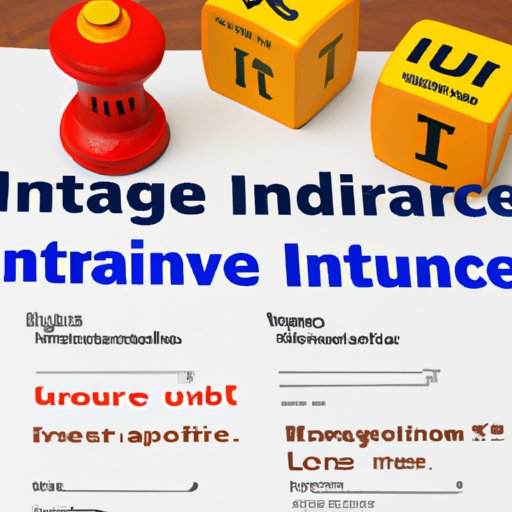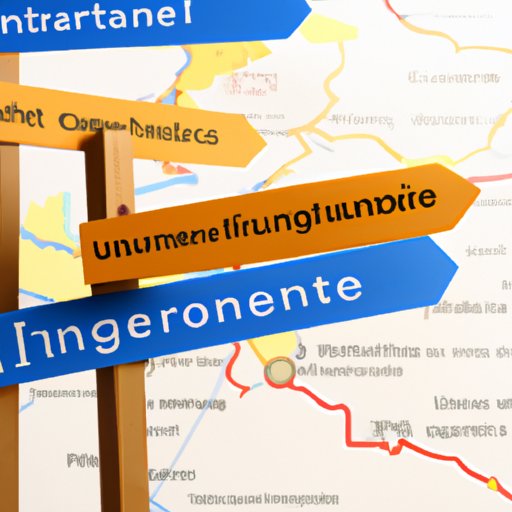Introduction
Travel can be an expensive endeavor, especially when unexpected events occur. To protect travelers from financial loss, trip interruption insurance exists to provide a safety net in case of any unforeseen circumstances. But what exactly is trip interruption insurance? How does it work and what does it cover? Read on to learn more about this type of insurance and how it can save you money.

How Trip Interruption Insurance Can Save You Money
Trip interruption insurance is designed to help offset the costs incurred from unexpected events that disrupt travel plans. It can cover expenses such as lodging, meals, and other incidentals related to the delay or cancellation of a trip. The amount of coverage varies depending on the policy, but typically includes up to 150% of the insured’s trip cost.
Types of Expenses Covered
Trip interruption insurance can cover a variety of expenses related to a canceled or interrupted trip. These may include: lodging, meals, transportation, medical expenses, and additional baggage fees. It can also cover flight changes and rebooking fees, as well as non-refundable deposits for cruise lines, tour operators, and car rentals.
Understanding Deductibles
Most trip interruption policies have a deductible, which is an amount you must pay before your coverage begins. Deductibles can range from $50 to $500, depending on the policy. It’s important to understand the specific deductible associated with your policy so you know how much you’ll need to pay out of pocket if you need to file a claim.
Exploring the Cost of Coverage
The cost of trip interruption insurance depends on a variety of factors, including the length of the trip, destination, and age of the traveler. Generally speaking, the longer the trip and the farther the destination, the higher the cost. The average cost of a single-trip policy is between 5-7% of the total trip cost.
What to Know Before Purchasing Trip Interruption Insurance
Before purchasing trip interruption insurance, there are a few important things to consider. Understanding the terms and conditions of the policy, examining pre-existing conditions, and knowing when to buy coverage can all help ensure you get the most out of your policy.
Understanding the Terms and Conditions
It’s important to read the fine print of any trip interruption insurance policy to make sure you understand the terms and conditions. Pay special attention to the list of covered and non-covered events, as well as any applicable deductibles and exclusions. Be sure to ask questions if anything is unclear.
Considering Pre-Existing Conditions
Many trip interruption policies exclude coverage for pre-existing conditions, so it’s important to review the policy carefully to make sure your condition is covered. If it is not, you may be able to purchase additional coverage to cover any potential medical expenses.
Knowing When to Buy Coverage
In order to get the best coverage, it’s important to purchase trip interruption insurance as soon as possible. According to a study by the U.S. Travel Insurance Association, “75% of all claims are filed within two weeks after the purchase of the insurance.” So the sooner you buy coverage, the better protected you’ll be.
What Benefits Does Trip Interruption Insurance Provide?
Trip interruption insurance provides protection against a variety of different events that could disrupt your travel plans. Here are some of the most common benefits.
Lost Baggage
Trip interruption insurance can provide coverage for lost, stolen, or damaged baggage. Depending on the policy, it may also cover the cost of replacing essential items such as medications, eyeglasses, or other personal items.
Flight Delays/Cancellations
Trip interruption insurance can provide coverage for flight delays and cancellations due to weather, mechanical issues, or other unexpected circumstances. Depending on the policy, it may also cover the cost of meals and accommodations during the delay or cancellation.
Illness or Injury
Trip interruption insurance can provide coverage for medical expenses resulting from an illness or injury that occurs while traveling. It can also cover the cost of returning home early if necessary due to a medical emergency.
An Overview of Trip Interruption Insurance Coverage
When considering trip interruption insurance, it’s important to understand the factors that determine coverage and the amounts covered by the policy. Here’s an overview of what you need to know.
Factors That Determine Coverage
There are several factors that can affect the amount of coverage provided by a trip interruption insurance policy. These include the duration of the trip, the destination, the age of the traveler, and any pre-existing medical conditions that may exist.
Amounts Covered by Policy
Trip interruption insurance policies typically provide coverage up to 150% of the insured’s trip cost. This means that if the trip cost is $1,000, the policy will provide up to $1,500 in coverage. However, it’s important to note that many policies have limits on the amount of coverage provided for certain expenses, such as baggage or medical expenses.

Exploring the Types of Trip Interruption Insurance Available
Trip interruption insurance comes in a variety of forms, from standard plans to specialty plans and group plans. Here’s a closer look at each one.
Standard Plans
Standard plans are the most common type of trip interruption insurance. They provide coverage for a variety of unexpected events, such as flight delays, cancellations, lost baggage, and medical expenses. They are typically offered through travel agencies or airlines.
Specialty Plans
Specialty plans are more tailored to specific types of trips, such as cruises, tours, or international travel. They often provide additional coverage for activities such as scuba diving or skiing. These plans are typically offered through specialty insurers or tour operators.
Group Plans
Group plans are designed for groups of people traveling together. They typically provide coverage for the entire group, as well as additional benefits such as discounts on hotels or rental cars. These plans are usually offered through tour operators or travel agents.

Common Questions About Trip Interruption Insurance
Here are answers to some of the most common questions about trip interruption insurance.
Who Is Eligible for Coverage?
Trip interruption insurance is typically available to anyone over the age of 18 who is traveling. Some policies may have age restrictions, so it’s important to check the details of the policy before purchasing.
What Is Not Covered?
Trip interruption insurance typically does not cover events that are outside of the control of the insured, such as war, terrorism, or natural disasters. It also does not cover pre-existing conditions or any intentional acts of the insured.
How Can I File a Claim?
If you need to file a claim, contact the insurer as soon as possible. Most policies require you to file a claim within a certain time frame, usually within 30 days of the incident. You will need to provide documentation such as receipts, tickets, and medical records to support your claim.
Conclusion
Trip interruption insurance can provide valuable protection for travelers. By understanding the benefits, cost, and coverage of this type of insurance, you can make an informed decision about whether it’s right for you. With the right policy, you can enjoy peace of mind knowing that you’re covered in the event of an unexpected interruption to your travel plans.
(Note: Is this article not meeting your expectations? Do you have knowledge or insights to share? Unlock new opportunities and expand your reach by joining our authors team. Click Registration to join us and share your expertise with our readers.)
